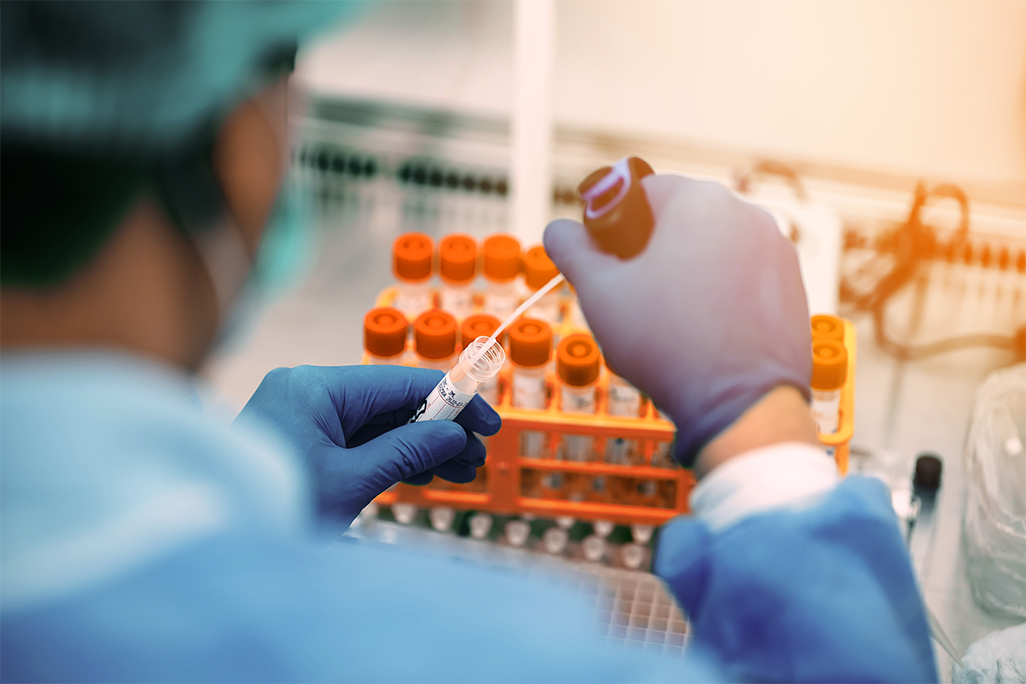EU's 'flexible' pharma reforms likely to require fine-tuning to address uncertainties
Published on 12th September 2023
The reduction of the regulatory data protection period and wholesale distribution changes raise some industry concern

Regulatory data protection, market protection and wholesale distribution are a core focus of the legislative reform proposed in April for the EU's pharmaceutical sector.
The draft proposals follow the European Commission presenting a pharmaceutical strategy for Europe in 2020 that outlined priorities for a patient-centred environment for the industry in the EU to innovate and continue as a world global leader.
The proposed EU reform will have an impact on existing key regulatory instruments, including Directive 2001/83/EC, Regulation (EC) 726/2004 and the legislation on paediatric and orphan drugs.
Better market and data protection
The package seeks to promote market innovation and competitiveness through a simplified regulatory framework and better and earlier support from the European Medicines Agency (EMA). It introduces incentives for regulatory data protection and for innovation to meet medical needs and moves away from a “one size fits all” system of incentives for pharmaceutical companies.
Regulatory data protection needs to be extended and companies encouraged to provide innovative and affordable medicines and to make medicines available more broadly and earlier and market authorisation procedures simplified.
The reform looks to address shortages and security of supply. If passed into law, it will require national and European medicines' authorities to monitor shortages more closely. The EMA will have a strengthened coordination role, with obligations to report shortages and withdrawals of medicines earlier and provide prevention plans. An EU-wide list of critical medicines is to be established and supply chain vulnerabilities assessed and recommendations provided.
Data exclusivity and market protection
Substantial protection is offered to new medicines by data exclusivity and market protection, which complement other rights such as patents and supplementary protection certificates.
For the EMA, regulatory data protection (RDP) or "data exclusivity" refers to the period of time during which an applicant cannot rely on data – including the results of preclinical tests and clinical trials on the medicine – to support another marketing authorisation (MA) application, obtain an MA or place the product on the market. This results in a situation where applications for generics, hybrids or biosimilars cannot be validated by the EMA.
As significant costs are involved in collecting large amounts of pre-clinical and clinical data, exclusivity offers a form of return on investment and an incentive to develop medicines in the EU. The RDP system contributes to the prevention of unfair commercial advantages.
Market protection, on the other hand, is the period of time during which a generic, hybrid or biosimilar cannot be placed on the market, even if the medicinal product has already received a MA. It means that a generic company is not allowed to launch its product for 10 years after the first MA; that is, during a period of two years after the end of the data protection period.
Revised rules and conditional extensions
The current regime (Regulation (EC) 726/2004) provides that medicinal products benefit from an eight-year period of data protection and a 10-year period of marketing protection. Extensions to a maximum of 11 years are possible if the holder obtains the MA for one or more new therapeutic indications – and these are held to bring a significant clinical benefit compared with existing therapies.
Under the proposal, the period of regulatory data protection is reduced from eight to six years, while the duration of the market protection remains unchanged at two years. To compensate for the fact that the period of regulatory data protection is reduced, mechanisms are provided to extend protection by:
- 24 months, if the MA holder can demonstrate that, within two years – or three in some cases – from the date when the MA was granted, the medicinal product was released and continuously supplied into the supply chain in a sufficient quantity and presentation necessary to cover the needs of the patients in the Member States in which the MA is valid.
- six months, if the MA applicant demonstrates at the time of the initial application that the medicinal product addresses an unmet medical need.
- six months for medicinal products containing a new active substance, where the clinical trials supporting the initial MA application use a relevant and evidence-based comparator in accordance with scientific advice provided by the EMA.
- 12 months, where the MA holder obtains, during the data protection period, an authorisation for an additional therapeutic indication for which the MA holder has demonstrated, with supporting data, a significant clinical benefit in comparison with existing therapies.
With these additional conditional protection periods, the period of regulatory data and market protection could add up to 12 years for innovative medicines if a new therapeutic indication is added after the initial MA.
Product-specific rules
The proposal specifies that repurposed medicinal products would enjoy a regulatory data protection period of four years, provided that adequate non-clinical or clinical studies were carried out in relation to the therapeutic indication demonstrating that it is of significant clinical benefit. Also, the medicinal product concerned needs to be authorised in accordance and has not previously benefitted from data protection (or 25 years have passed since the granting of the initial MA).
Priority antimicrobials may be granted a transferable data exclusivity "voucher" by the Commission upon request of the applicant applying for a MA. The voucher would give its holder the right to an additional 12 months of data protection for one authorised medicinal product.
The market protection period for orphan medicinal products would be organised as 10 years for orphan medicinal products addressing a high unmet medical need, five years for orphan medicinal products authorised based on bibliographic data; and nine years for other orphan medicinal products.
There is also a paediatric drugs benefit from independent data and marketing protection periods, when the paediatric-use MA is granted and includes the results of all studies conducted in compliance with an agreed paediatric investigation plan.
Wholesale distribution
A new definition of 'wholesale distribution' specifies that activities, such as procuring, holding, supplying and exporting medicinal products, may be conducted "for profit or not" for profit. Wholesale distribution principles and the authorisation requirement, known as wholesale distribution authorisation (WDA), remain in effect.
However, there a few changes of which WDA holders need to be aware. For example, the proposal clarifies that the obligation to obtain supplies of medicines only from persons who are themselves in possession of a WDA or a manufacturing and importation authorisation (MIA) applies to any obtention of supply "including by financial transactions".
This raises questions as to how the requirement would co-exist with annex 21 on the importation of medicinal products of Eudralex volume 4, revised in February 2022. Annex 21 currently specifies that the term importation refers to the action of physically bringing a medicinal product, from outside the territory of European Economic Aarea and the EU, excluding fiscal transactions.
An emphasis is placed, in the Proposal, on the training and competency staff or personnel involved in wholesale distribution processes.
Osborne Clarke comment
The proposal has been open for feedback since 26 April 2023. The initial eight weeks period to provide comments has been extended and will likely run at least until the end of October 2023, which gives contributors the opportunity to comment on the new legislation.
Overall, the Commission's initiative is a great step towards implementing Europe's pharmaceutical strategy and its main objectives, including access, availability and safety of medicines and environmental protection.
Although some measures have the potential to achieve these objectives, the decision to reduce the period of regulatory data protection to six years gives rise to concern. It could reduce drastically the incentive to develop and invest and, therefore, diminish Europe's competitiveness. Some uncertainty also remains around small proposed changes compared to Directive 2001/83/EC, including around promotion (advertising) of medicines and wholesale distribution.
The proposed legal framework is based on a modulated system of incentives and aims to move away from a one-size-fits-all model. In doing so, it may create a flexible and modular legal framework but also a fair share of legal and regulatory uncertainties, which will hopefully be addressed in the coming months through the EU legislative process.
The other Insights in this "deep dive" series on the EU's proposal to reform the pharmaceutical market look at advertising, manufacturing/import, and marketing authorisation applications, and medical devices and combinations, medicines' product information and pharmacovigilance.



